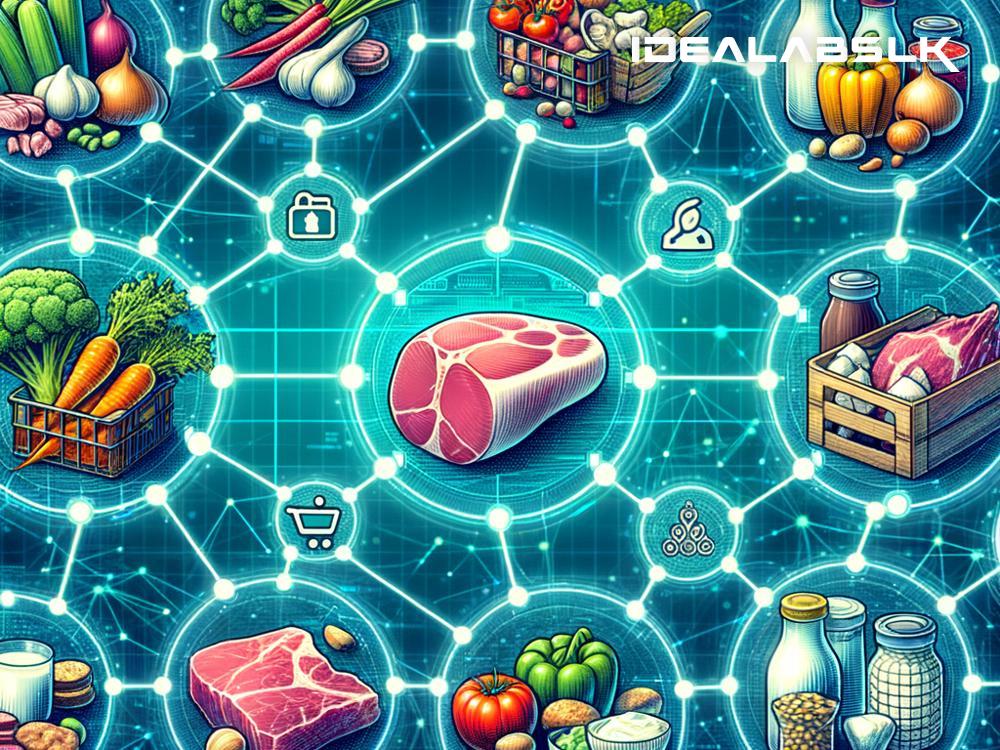The Role of Blockchain in Ensuring the Quality of Processed Foods
In today's fast-paced world, processed foods have become an integral part of our daily diet. Whether it's for convenience, taste, or necessity, consumers are increasingly relying on these foods. However, one major concern that often arises is about the quality and safety of these products. How do we know if the food we consume is safe, pure, and made according to the highest standards? This is where Blockchain technology comes into play, offering a revolutionary way to ensure the quality of processed foods.
What is Blockchain?
Blockchain is essentially a digital ledger that securely records transactions. Think of it as a high-tech record-keeping system that is transparent, immutable (meaning it cannot be changed), and decentralized (not controlled by a single entity). Originally developed for the digital currency, Bitcoin, Blockchain technology has found its way into various other sectors, including the food industry.
How Does Blockchain Verify the Quality of Processed Foods?
Blockchain technology can transform the food industry by providing a transparent, tamper-proof system that tracks every step a food product takes from farm to table. Here’s how it works:
-
Traceability: Each step of a food item's journey is recorded on the Blockchain. This includes when and where it was grown, processed, stored, inspected, and how it arrived at the supermarket or restaurant. This level of traceability ensures that any product can be traced back to its source within seconds.
-
Transparency: Because the Blockchain is a decentralized system, all parties involved in the supply chain (from farmers to retailers) have access to the same information. This prevents the alteration of information and ensures that everyone is accountable for their part in ensuring food quality.
-
Immutability: Once information is recorded on the Blockchain, it cannot be altered or deleted. This permanence ensures that the food history is accurate and unchangeable, making it difficult for fraudulent activities to occur.
-
Real-time Monitoring: Blockchain can be integrated with sensors and IoT (Internet of Things) devices to monitor conditions in real-time. For example, sensors can track the temperature at which food is stored during transportation. If the temperature falls outside a safe range, it can be flagged immediately, ensuring that only products that meet quality standards reach consumers.
The Benefits of Using Blockchain in the Processed Food Industry
The use of Blockchain technology promises several benefits for ensuring the quality of processed foods:
-
Enhanced Food Safety: By enabling rapid traceability, blockchain helps quickly identify and address sources of contamination. This not only limits the spread of food-borne illnesses but also improves consumer trust.
-
Reduced Food Fraud: With each transaction securely recorded, it becomes challenging to introduce counterfeit products. Consumers can be more confident that they're getting exactly what they paid for.
-
Greater Efficiency: Traditional paper tracking and manual inspections are time-consuming. Blockchain automates these processes, making them more efficient and reducing the potential for human error.
-
Improved Consumer Trust: When consumers know they can check the history of their food, it builds trust in the brands and products they choose.
Real-world Application
Some global food giants are already harnessing the power of Blockchain to ensure the quality of their products. For instance, Walmart uses Blockchain to trace the origin of some of the produce they sell, which helped them to significantly reduce the time it takes to trace the source of food from days to mere seconds.
The Future of Blockchain in the Food Industry
While still in its early stages, the potential of Blockchain to transform the food industry is immense. As technology advances and becomes more accessible, we can anticipate more companies will adopt Blockchain to enhance food safety, reduce wastage, and gain consumer trust.
In conclusion, Blockchain technology offers an innovative solution to the age-old problem of ensuring the quality of processed foods. By providing a transparent, secure, and efficient method to trace the journey of food products, Blockchain can help to significantly improve food safety and quality. As we look toward the future, it's exciting to consider how this technology will continue to revolutionize the food industry, making our food supply safer and more trustworthy than ever before.

